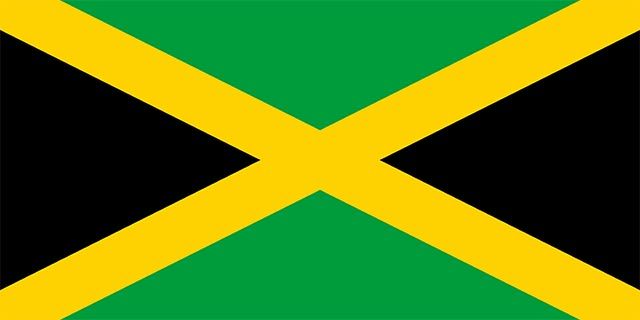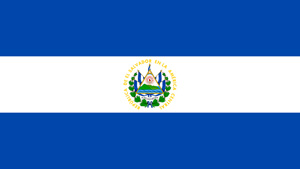
Citizen of Jamaica is granted permanent residency even though he filed his I-751 Petition to Remove Conditions on Residency over six years late
November 11, 2020
Facts: In April of 2016, a citizen of Jamaica came to the firm seeking help with his temporary residence card which had expired six years earlier. Too, our client had already been placed in removal proceedings.
The Firm’s Representation: Given the six-year delay, the firm could not promise our client a positive result, nevertheless the firm went to work right away and gathered the necessary documents and forms to try to remove the temporary conditions of our client’s temporary residency card. The firm discovered that our client’s wife had filed for divorce and never properly served our client with any notice of the divorce proceedings. The firm applied for a waiver based on divorce in the I-751 Petition to Remove Temporary Conditions on Residency application. The processing of our client’s I-751 took several years. In the meantime, our client had several arrests and other brushes with law enforcement which resulted in extended periods of incarceration by local law enforcement and ICE after our client’s immigration bond was revoked. The firm worked with our client’s Virginia criminal defense attorney to fashion an immigration friendly plea. Based on our client’s numerous brushes with law enforcement, the USCIS scrutinized our client’s I-751 application closely and requested numerous documents through a Notice of Intent to Deny (because USCIS asserted that our client’s marriage to his ex-wife was not bona fide) and a Request for Further Evidence (for documents related to our client’s arrests). Regarding the Request for Further Evidence of our client’s arrests, the firm prepared a legal memorandum asserting that our client’s arrests and convictions had no bearing on the USCIS decision to approve or deny our client’s I-751.
Outcome: Our client’s I-751 was granted on October 2, 2020. The firm learned about the grant of residency on October 8, 2020 and after the firm made some phone calls to ICE, our client was released from ICE custody on October 9, 2020.
Comments: Our client spent two years in local and ICE custody and his I-751 application was far from ordinary and it was a gratifying win for the firm and for our client. Our client and his family were amazed and thrilled that he walked out of ICE custody with his permanent residency card. The firm also advised our client that he was immediately eligible to apply for citizenship.

Mandamus suit in federal court prompts USCIS to grant green card application for a citizen of El Salvador who was “waved through” the border
June 21, 2019
Facts: In early 2017, a citizen of El Salvador came to the firm seeking help to get a green card.
The Firm’s Representation: Our client was married to a U.S. citizen. Our client had been previously represented by a notario who had successfully obtained an approved I-130 family based petition, but the notario had told our client that she had to return to El Salvador to get an immigrant visa to return to the United States because she had entered the United States illegally. However, the firm asked the client to describe her entry into the United States and the firm determined that our client had been “waved through” the border which is a valid entry into the United States according to a case in the Board of Immigration Appeals entitled Matter of Quilantan, 25 I&N Dec. 285 (BIA 2010). So, in April of 2017, the firm filed our client’s I-485 application for permanent residency based on the approved I-130 from her U.S. citizen spouse and the “wave through”. The firm attended an interview with USCIS, but USCIS would not make a decision on the case, even after two years of waiting. In April of 2019, our client was tired of waiting and engaged the firm to file a mandamus in federal court to compel USCIS to make a decision on our client’s I-485 green card application.
Outcome: On June 21, 2019, USCIS granted our client’s green card application. The client was needless to say overjoyed and celebrated July 4th as newly minted permanent resident of the United States.

After near deportation, citizen of El Salvador enters the United States with a green card
January 28, 2016
Facts: In early 2013, a citizen of El Salvador came to the firm seeking a solution to his immigration problems.
The Firm’s Representation: This case was one of the most difficult cases that the firm has ever handled because the initial outlook for the case was not good at all. In early 2013, our client and his U.S. citizen wife approached the firm to see what could be done. Our client had an in absentia removal order from 2005 from when he crossed the U.S. border and was placed in removal proceedings but failed to attend his immigration court hearing. In addition, our client had two DUI convictions. There was no way to reopen our client’s case through the immigration court. So, the firm petitioned Immigration and Customs Enforcement (ICE) to join a motion to reopen. Concurrently, the firm submitted a family based I-130 petition to USCIS. The firm knew that reopening with ICE would be dicey with the DUI convictions. In addition, at that time ICE had a stated policy that it would not join motions to reopen so that non-citizens could pursue the Provisional Unlawful Presence Waiver. The firm filed the joint motion request in May of 2013. The request was denied in December 2013. The firm persisted with ICE and asked for a re-examination of the request in January 2014. Several weeks later, ICE detained our client in order to physically deport him. The firm worked fast and filed a stay of removal with ICE which was granted several days later. Fortunately, in August 2014, ICE agreed to reopen and terminate our client’s removal order. Once the removal order was terminated and the I-130 petition was granted, the firm filed an I-601A waiver for our client, which was granted on April 1, 2015. Then, the firm then processed our client’s immigrant visa at the U.S. Embassy in San Salvador, El Salvador.
Outcome: On January 28, 2016, three years after the firm started the representation, our client entered the United States with his immigrant visa.

Citizen of Guatemala receives green card based on Special Immigrant Juvenile Status
March 31, 2014
Facts: On March 9, 2013, a citizen of Guatemala was in deportation proceedings. He came to the firm for help.
The Firm’s Representation: Our client was a minor. In addition, our client’s father had abandoned him when he was nine years old. The firm quickly realized that he could qualify for Special Immigrant Juvenile Status (SIJS). SIJS is a three step process. First, a guardian for the minor must be appointed in the state court, and the state court must make special findings. Essentially, the state court must make a special finding (1) that the minor was subjected to abuse, neglect or abandonment by one or both parents and (2) that it is not in the best interest of the child to be returned to his home country. Once guardianship and the special finding have been made, the minor can self-petition for a visa with USCIS. The last step is that the minor can apply for a green card with USCIS. Our client was only two weeks away from turning 18 years old and the firm had to act quickly because the Maryland state courts have guardianship jurisdiction until the minor turns 18 years old. The firm expedited the guardianship proceedings and obtained the guardianship and special findings prior to our client turning 18. Then the firm filed our client’s self-petition, which was granted.
Outcome: On March 31, 2014, our client received his green card.

Citizen of El Salvador is granted a green card through NACARA after being voluntarily placed in removal proceedings
March 12, 2013
Facts: In September 2012, a citizen of El Salvador was desperate to get his green card. He had been in the United States for nearly 25 years. He was eligible for NACARA (Nicaraguan And Central American Relief Act), but he could not apply to USCIS to get his green card. His previous attorney billed him thousands of dollars, but ultimately, the attorney did nothing for the citizen of El Salvador. The citizen of El Salvador sought the firm’s help.
The Firm’s Representation: The firm first analyzed whether there was any relief available for our client. The form realized that our client was eligible for NACARA. However, our client never applied for asylum. Because our client never applied for asylum, USCIS did not have jurisdiction over his NACARA application. Only the Immigration Court had jurisdiction to adjudicate his NACARA application. The firm told our client that he had to be placed in removal proceedings to get a green card. Of course, our client was very concerned about being placed in removal proceedings, but the firm assured him that everything would be okay. The firm placed our client in removal proceedings. The firm attended one status hearing with our client in the Immigration Court in January 2013, whereupon a final hearing was set for March 12, 2013.
Outcome: On March 12, 2013, our client was granted NACARA special rule cancellation of removal and granted a green card.

